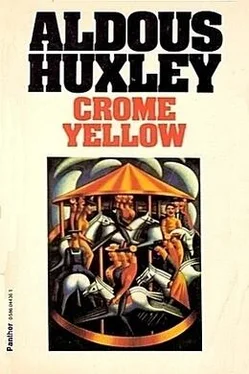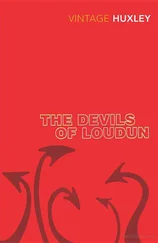"On his twelfth birthday Hercules was still only three feet and two inches in height. His head, which was very handsome and nobly shaped, was too big for his body, but otherwise he was exquisitely proportioned, and, for his size, of great strength and agility. His parents, in the hope of making him grow, consulted all the most eminent physicians of the time. Their various prescriptions were followed to the letter, but in vain. One ordered a very plentiful meat diet; another exercise; a third constructed a little rack, modelled on those employed by the Holy Inquisition, on which young Hercules was stretched, with excruciating torments, for half an hour every morning and evening. In the course of the next three years Hercules gained perhaps two inches. After that his growth stopped completely, and he remained for the rest of his life a pigmy of three feet and four inches. His father, who had built the most extravagant hopes upon his son, planning for him in his imagination a military career equal to that of Marlborough, found himself a disappointed man. 'I have brought an abortion into the world,' he would say, and he took so violent a dislike to his son that the boy dared scarcely come into his presence. His temper, which had been serene, was turned by disappointment to moroseness and savagery. He avoided all company (being, as he said, ashamed to show himself, the father of a lusus naturae, among normal, healthy human beings), and took to solitary drinking, which carried him very rapidly to his grave; for the year before Hercules came of age his father was taken off by an apoplexy. His mother, whose love for him had increased with the growth of his father's unkindness, did not long survive, but little more than a year after her husband's death succumbed, after eating two dozen of oysters, to an attack of typhoid fever.
"Hercules thus found himself at the age of twenty–one alone in the world, and master of a considerable fortune, including the estate and mansion of Crome. The beauty and intelligence of his childhood had survived into his manly age, and, but for his dwarfish stature, he would have taken his place among the handsomest and most accomplished young men of his time. He was well read in the Greek and Latin authors, as well as in all the moderns of any merit who had written in English, French, or Italian. He had a good ear for music, and was no indifferent performer on the violin, which he used to play like a bass viol, seated on a chair with the instrument between his legs. To the music of the harpsichord and clavichord he was extremely partial, but the smallness of his hands made it impossible for him ever to perform upon these instruments. He had a small ivory flute made for him, on which, whenever he was melancholy, he used to play a simple country air or jig, affirming that this rustic music had more power to clear and raise the spirits than the most artificial productions of the masters. From an early age he practised the composition of poetry, but, though conscious of his great powers in this art, he would never publish any specimen of his writing. 'My stature,' he would say, 'is reflected in my verses; if the public were to read them it would not be because I am a poet, but because I am a dwarf.' Several MS. books of Sir Hercules's poems survive. A single specimen will suffice to illustrate his qualities as a poet.
"'In ancient days, while yet the world was young, Ere Abram fed his flocks or Homer sung; When blacksmith Tubal tamed creative fire, And Jabal dwelt in tents and Jubal struck the lyre; Flesh grown corrupt brought forth a monstrous birth And obscene giants trod the shrinking earth, Till God, impatient of their sinful brood, Gave rein to wrath and drown'd them in the Flood. Teeming again, repeopled Tellus bore The lubber Hero and the Man of War; Huge towers of Brawn, topp'd with an empty Skull, Witlessly bold, heroically dull. Long ages pass'd and Man grown more refin'd, Slighter in muscle but of vaster Mind, Smiled at his grandsire's broadsword, bow and bill, And learn'd to wield the Pencil and the Quill. The glowing canvas and the written page Immortaliz'd his name from age to age, His name emblazon'd on Fame's temple wall; For Art grew great as Humankind grew small. Thus man's long progress step by step we trace; The Giant dies, the hero takes his place; The Giant vile, the dull heroic Block: At one we shudder and at one we mock. Man last appears. In him the Soul's pure flame Burns brightlier in a not inord'nate frame. Of old when Heroes fought and Giants swarmed, Men were huge mounds of matter scarce inform'd; Wearied by leavening so vast a mass, The spirit slept and all the mind was crass. The smaller carcase of these later days Is soon inform'd; the Soul unwearied plays And like a Pharos darts abroad her mental rays. But can we think that Providence will stay Man's footsteps here upon the upward way? Mankind in understanding and in grace Advanc'd so far beyond the Giants' race? Hence impious thought! Still led by GOD'S own Hand, Mankind proceeds towards the Promised Land. A time will come (prophetic, I descry Remoter dawns along the gloomy sky), When happy mortals of a Golden Age Will backward turn the dark historic page, And in our vaunted race of Men behold A form as gross, a Mind as dead and cold, As we in Giants see, in warriors of old. A time will come, wherein the soul shall be From all superfluous matter wholly free; When the light body, agile as a fawn's, Shall sport with grace along the velvet lawns. Nature's most delicate and final birth, Mankind perfected shall possess the earth. But ah, not yet! For still the Giants' race, Huge, though diminish'd, tramps the Earth's fair face; Gross and repulsive, yet perversely proud, Men of their imperfections boast aloud. Vain of their bulk, of all they still retain Of giant ugliness absurdly vain; At all that's small they point their stupid scorn And, monsters, think themselves divinely born. Sad is the Fate of those, ah, sad indeed, The rare precursors of the nobler breed! Who come man's golden glory to foretell, But pointing Heav'nwards live themselves in Hell.'
"As soon as he came into the estate, Sir Hercules set about remodelling his household. For though by no means ashamed of his deformity—indeed, if we may judge from the poem quoted above, he regarded himself as being in many ways superior to the ordinary race of man—he found the presence of full–grown men and women embarrassing. Realising, too, that he must abandon all ambitions in the great world, he determined to retire absolutely from it and to create, as it were, at Crome a private world of his own, in which all should be proportionable to himself. Accordingly, he discharged all the old servants of the house and replaced them gradually, as he was able to find suitable successors, by others of dwarfish stature. In the course of a few years he had assembled about himself a numerous household, no member of which was above four feet high and the smallest among them scarcely two feet and six inches. His father's dogs, such as setters, mastiffs, greyhounds, and a pack of beagles, he sold or gave away as too large and too boisterous for his house, replacing them by pugs and King Charles spaniels and whatever other breeds of dog were the smallest. His father's stable was also sold. For his own use, whether riding or driving, he had six black Shetland ponies, with four very choice piebald animals of New Forest breed.
"Having thus settled his household entirely to his own satisfaction, it only remained for him to find some suitable companion with whom to share his paradise. Sir Hercules had a susceptible heart, and had more than once, between the ages of sixteen and twenty, felt what it was to love. But here his deformity had been a source of the most bitter humiliation, for, having once dared to declare himself to a young lady of his choice, he had been received with laughter. On his persisting, she had picked him up and shaken him like an importunate child, telling him to run away and plague her no more. The story soon got about—indeed, the young lady herself used to tell it as a particularly pleasant anecdote—and the taunts and mockery it occasioned were a source of the most acute distress to Hercules. From the poems written at this period we gather that he meditated taking his own life. In course of time, however, he lived down this humiliation; but never again, though he often fell in love, and that very passionately, did he dare to make any advances to those in whom he was interested. After coming to the estate and finding that he was in a position to create his own world as he desired it, he saw that, if he was to have a wife—which he very much desired, being of an affectionate and, indeed, amorous temper—he must choose her as he had chosen his servants—from among the race of dwarfs. But to find a suitable wife was, he found, a matter of some difficulty; for he would marry none who was not distinguished by beauty and gentle birth. The dwarfish daughter of Lord Bemboro he refused on the ground that besides being a pigmy she was hunchbacked; while another young lady, an orphan belonging to a very good family in Hampshire, was rejected by him because her face, like that of so many dwarfs, was wizened and repulsive. Finally, when he was almost despairing of success, he heard from a reliable source that Count Titimalo, a Venetian nobleman, possessed a daughter of exquisite beauty and great accomplishments, who was by three feet in height. Setting out at once for Venice, he went immediately on his arrival to pay his respects to the count, whom he found living with his wife and five children in a very mean apartment in one of the poorer quarters of the town. Indeed, the count was so far reduced in his circumstances that he was even then negotiating (so it was rumoured) with a travelling company of clowns and acrobats, who had had the misfortune to lose their performing dwarf, for the sale of his diminutive daughter Filomena. Sir Hercules arrived in time to save her from this untoward fate, for he was so much charmed by Filomena's grace and beauty, that at the end of three days' courtship he made her a formal offer of marriage, which was accepted by her no less joyfully than by her father, who perceived in an English son–in–law a rich and unfailing source of revenue. After an unostentatious marriage, at which the English ambassador acted as one of the witnesses, Sir Hercules and his bride returned by sea to England, where they settled down, as it proved, to a life of uneventful happiness.
Читать дальше











